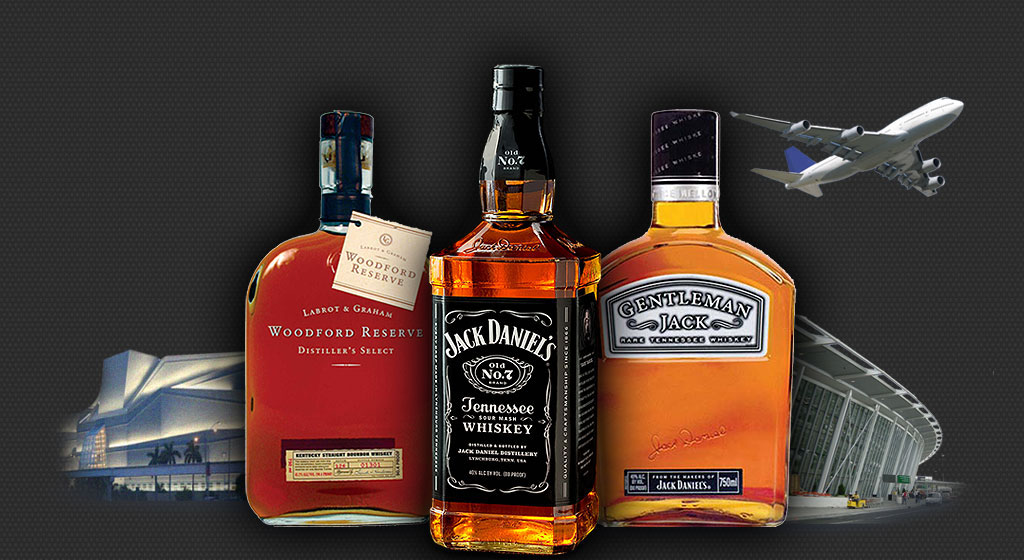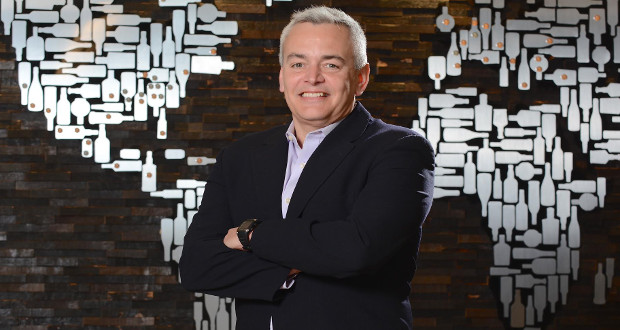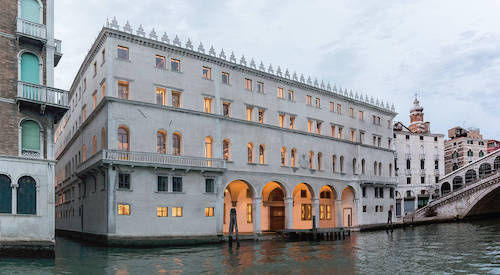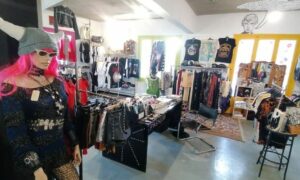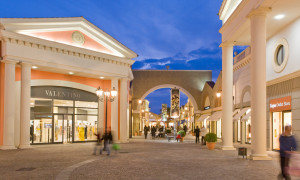Americans abroad can expect to see more availability of their favorite home-grown bourbons and whiskeys. The catch is, we have to venture out beyond our corner spirits shops to the airport, where duty-free shopping market is booming. It’s a $70 billion market worldwide, and it’s not surprising that much of that growth comes from sales of liquor and spirits.
That sector alone is expected to reach $13.5 billion by 2019, the third most-profitable merchandise group sold at duty-free shops.
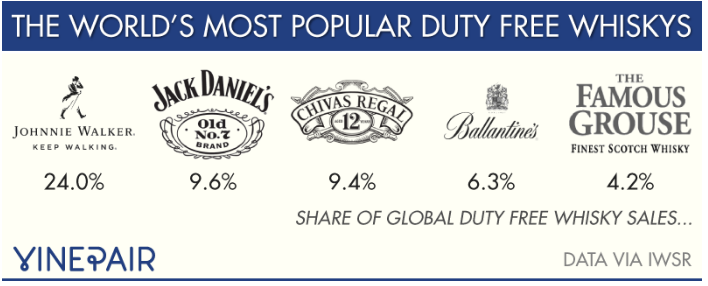 From an American point of view, it’s not surprising, either, that a leader in the worldwide boom is Brown-Forman Corp., the Louisville, Ky.-based owner of top global spirits brands including Finlandia vodka, Woodford Reserve bourbon and Jack Daniel’s Tennessee whiskey. Globally, Jack Daniel’s is the second-largest whiskey brand in the duty-free world behind two Scotches and vodka.
From an American point of view, it’s not surprising, either, that a leader in the worldwide boom is Brown-Forman Corp., the Louisville, Ky.-based owner of top global spirits brands including Finlandia vodka, Woodford Reserve bourbon and Jack Daniel’s Tennessee whiskey. Globally, Jack Daniel’s is the second-largest whiskey brand in the duty-free world behind two Scotches and vodka.
When Brown-Forman began to concentrate on the duty-free markets 20 years ago this month, Jack Daniel’s was the 20th-largest spirit brand. Today, it is in second place among the Big Four – along with industry-leader Johnnie Walker and Chivas Regal Scotch whiskeys and Absolut vodka – and the fastest-growing spirits brand internationally.
Even in second place, Jack Daniel’s annual duty-free sales of $2.7 billion are still only half those of Johnnie Walker, whose red, black, green, gold and blue labels produce an incredible $5.3 billion in sales.
Overall, the duty-free liquor business is clearly huge and still growing. So all of the big international spirits houses – Diageo, LVMH, Bacardi Ltd., Pernot-Ricard and Beam-Suntory, as well as Brown-Forman – are making enormous pushes to establish their duty-free presence. Because where outside of airports are tens of thousands of customers going to come to you every day of the year?
In Europe, says Eric Helms, marketing director of Brown-Forman travel retail, “our biggest markets are the UK, France and Germany. We also do well in emerging Eastern European markets, especially the Czech Republic; slightly less well in Spain, Portugal, Italy and the Nordic countries.”
Traditional over the-counter sales are hindered by protectionist tariffs and various “sin”-related regulations that push the retail prices of American liquor products sky-high. A bottle of premium small-batch bourbon such as Baker’s goes for 70 euros per bottle, or about $80, in the Netherlands rather than about $50 per bottle in Kentucky.
That’s why duty-free is such an important market for Brown-Forman and others. That and the fact that bourbon – the only truly American spirit – hasn’t penetrated the European market like it has in the U.S., where consumers find a new premium brand on the shelf every week.
It’s a tricky market, of course. As Helms says, such “out-of-our-control” factors as currency fluctuations, political turmoil, terrorism, local economic problems or health issues can throw the travel business alarmingly off its orbit. The SARS viral epidemic of 15 years ago practically wiped out international travel through Eastern Asia for seven months.
But it also springs back, Helms says, because so many people travel, whether required for business or for vacations, recreation or a load of personal reasons.
And the rewards are high, too. Helms says that if the duty-free market were a separate nation, it would be Brown-Forman’s sixth-largest market in the world, in terms of dollar volume, behind only the U.S., the U.K., Germany, France and Brazil.

THE JOHNNIE WALKER DISPLAY AT SCHIPHOL AIRPORT IN AMSTERDAM (Photo by Ivana Avramovic for Dispatches Europe)
As the industry leader, Johnnie Walker has set the duty-free model by launching limited-edition bottles for airports and cruise terminals only. In 2014, Diageo Plc, the London company that owns the brand, launched its first Johnnie Walker Gold Label Reserve Exclusive Traveller’s Edition, as well as two Johnnie Walker House lounge and duty-free outposts, one in India and the other in Taiwan.
Brown-Forman took a similar path with its special Frank Sinatra Century Jack Daniel’s edition, released in 2015 to celebrate the centennial of the singer’s birthday, limiting distribution to duty-free airport shops.
In general, says Helms, it’s not only about special editions and releases. “There’s not a meaningful airport in Europe where the regular Jack Daniel’s product is not available,” he says. “It’s a pretty pervasive brand.”
Planes, trains and automobiles
However, don’t think of “duty-free” as being limited strictly to airports and shipping terminals – or even related to what we normally think of as major international travel. There are a number of other retail channels:
• There are overnight ferry cruises (Helsinki-to-Stockholm-and back is one of the most popular, operated by Viking Cruise Lines) that open up a duty-free shop once they get out into international waters. “The savings on tariffs are substantial enough to more than cover the 10-20 euro fares,” says Brown-Forman spokesman Rick Bubenhofer.
• There is a growing network of freestanding duty-free shops in the downtowns of major international tourist cities. While these are most prevalent in Asian countries, they’re growing as well in Europe – there the new T Fondaco dei Tedeschi in Venice – and in Canada. Either tour groups shepherd travelers to and through these shops – often elegant three-and-four-level emporiums – or adventurous travelers find them on their own.
Either way, the principle is similar to the airport shops. You need a passport and a current travel ticket to buy anything. Your purchases are delivered to your plane or cruise ship upon departure.
• “Border stores” are even quicker, more accessible ways to access duty-free liquor. These stores sit just beyond international borders. (If you’re American, think of the fireworks stores that sit just inside the state lines of states that allow fireworks, outside the jurisdiction of those that prohibit them.) The border-store concept is especially prominent in Eastern Europe, where, for example, 40 million passengers are expected to cross from Finland to Russia by 2020, many of them just to fill up their shopping carts with liquor, cigarettes and household products, providing they have the proper documentation.
Earlier this year, the German travel retailer Gebr Heinemann SE & Co. KG, a Hamburg-based pioneer in duty-free shopping, acquired a Ukrainian company called Duty Free Alliance (based in Tbilisi) that operates 14 border shops on the Russian, Belarussian, Moldovan, Slovakian, Polish, Hungarian and Romanian borders.
It’s big business. Bubenhofer talks about “lad parties,” in which groups of young British men flock to places like Latvia and Majorca for the weekend.
Not surprisingly, for the lads, duty-free is a priority stop going and coming home ….


